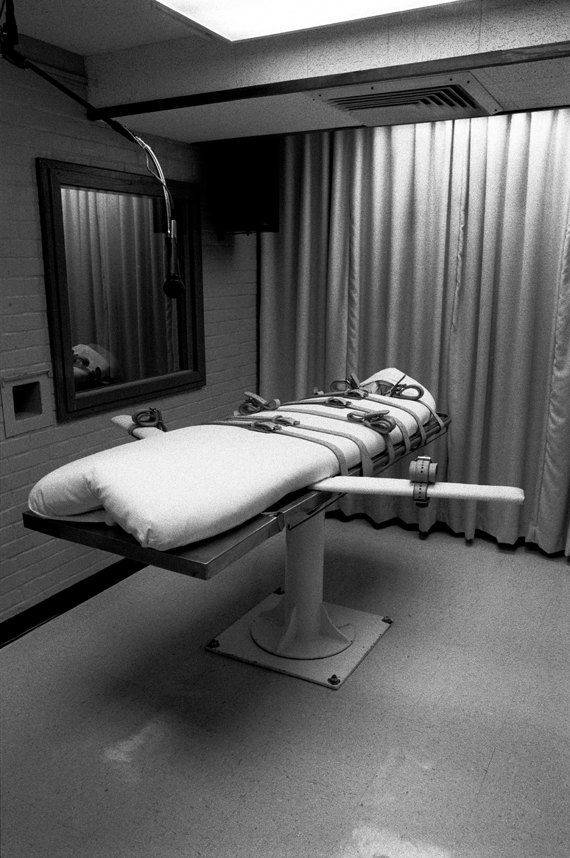The Dalai Lama had just finished speaking at an event on the Capitoline Hill in Rome when I sought him out and asked him to be one of the first signatories of the Community of Sant’Egidio’s Appeal for a Moratorium on the Death Penalty. He accepted immediately and signed in earth-green ink, which came as no surprise. Who more than the Dalai Lama is identified around the world with the need to respect life?
Indeed, all schools of Buddhism emphasize respect for life in all its forms. Though the Buddha did not specifically address capital punishment in his teachings, he encouraged his adherents not to do anything that could harm others, saying, “An action, even if it brings benefit to oneself, cannot be considered a good action if it causes physical and mental pain to another being.”
The respect for life that permeates Buddhism is inextricably connected to the principle of samsara, the infinitely repeating cycle of birth, suffering, death, and rebirth. Buddhists believe that samsara is the world’s nervous system, and when the death penalty is applied, both the person whose life is taken and the person who takes that life are negatively affected. It follows that trying to gain recompense for evil and even for violent death by inflicting more death simply causes a greater imbalance; only rehabilitation can restore balance and harmony in this world and the world of the spirit.
But, of course, the devil is in the details: in many countries where Buddhism is influential, such as Thailand and Japan, the death penalty is still thriving in spirit and in practice.
What accounts for this contradiction? One explanation may be that there is a wide disparity between the practices of Buddhist monastic orders and lay Buddhist followers, as in any religion. In their article “Mercy and Punishment: Buddhism and the Death Penalty,” criminology professors Leanne Fiftal Alarid and Hsiao-Ming Wang argue that while “the death penalty is inconsistent with Buddhist teachings,” historical reality is more complicated:
Buddhist doctrines hold nonviolence and compassion for all life in high regard. The first precept of Buddhism requires individuals to abstain from injuring or killing all living creatures and Buddha’s teaching restricts Buddhist monks from any political involvement. Using historical documents and interviews with contemporary authorities on Buddhist doctrine, our research uncovered a long history of political involvement by Buddhist monks and Buddhist support of violence.
The website ProCon.org gathers opinions from different cultures and religions on capital punishment. In the case of Buddhism, one voice on the “pro” side is that of Tomoko Sasaki, a former member of the Japanese Diet. Writing in a Washington Post article titled “Why Japan Still Has the Death Penalty,” he evokes “retribution” to justify his opinion: “A basic teaching [in Japanese Buddhism] is retribution. If someone evil does something bad, he has to atone with his own life.”
Sasaki assumes that capital punishment restores balance in karmic terms. But in reality, the death penalty creates a double negative: one life is lost, and then another follows. Capital punishment, seen in this way, is a violent disruption to the possibility of balancing different karmas and improving the world by favoring mercy and life. The flow and intercommunication of the reproductive karma, the supportive karma, the obstructive karma, and the destructive karma are dealt great blows by every death sentence.
When the Dalai Lama subscribed to the appeal I submitted on behalf of the community of Sant’Egidio, he also submitted this message, read at an event organized by the Peace Center on April 9, 1999:
The death penalty fulfills a preventive function, but it is also very clearly a form of revenge. It is an especially severe form of punishment because it is so final. The human life is ended and the executed person is deprived of the opportunity to change, to restore the harm done or compensate for it. Before advocating execution we should consider whether criminals are intrinsically negative and harmful people . . . The answer, I believe, is definitely not. However horrible the act they have committed, I believe that everyone has the potential to improve and correct themselves. Therefore, I am optimistic that it remains possible to deter criminal activity, and prevent such harmful consequences of such acts in society, without having to resort to the death penalty.
Excerpted from 13 Ways of Looking at the Death Penalty (Seven Stories Press, 2015)
Thank you for subscribing to Tricycle! As a nonprofit, we depend on readers like you to keep Buddhist teachings and practices widely available.
